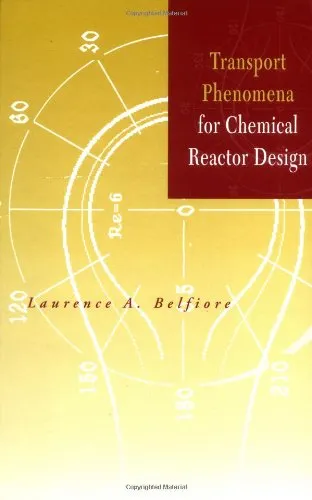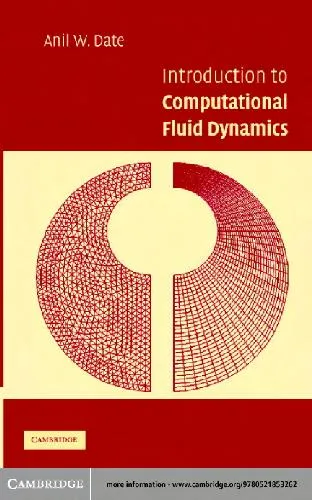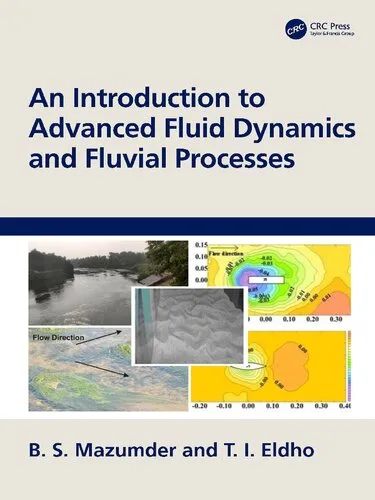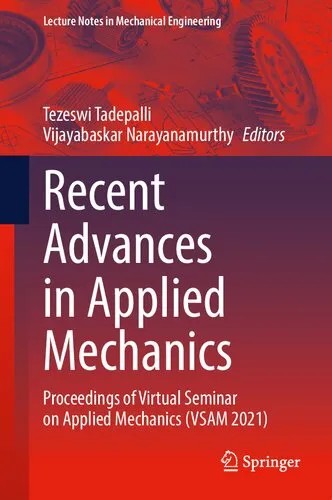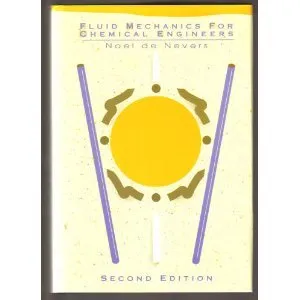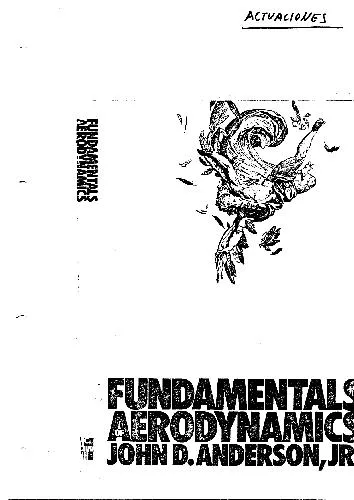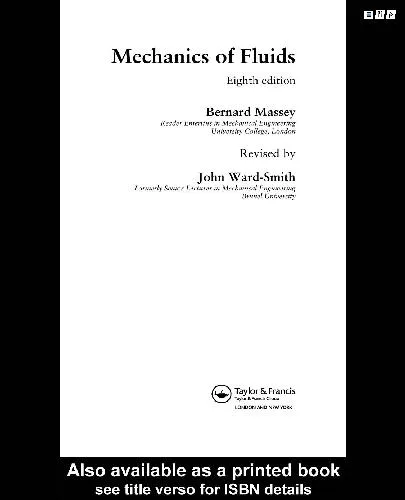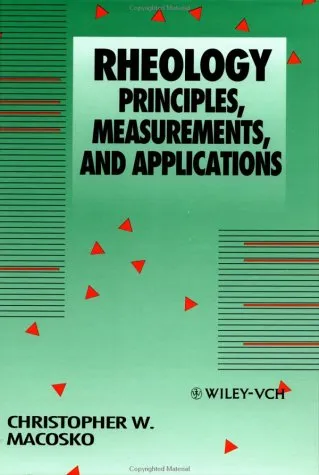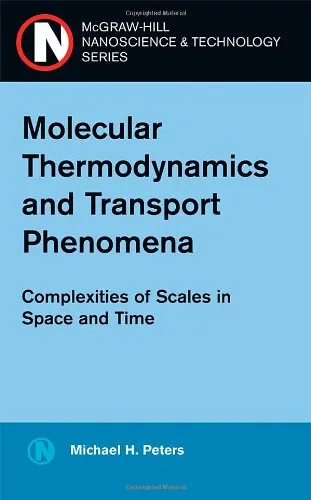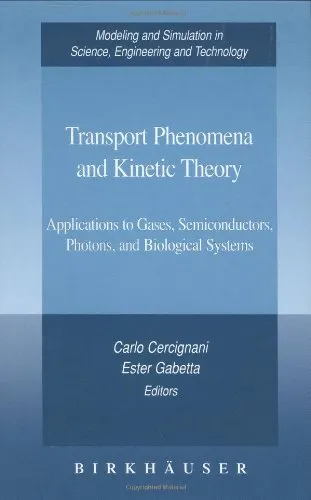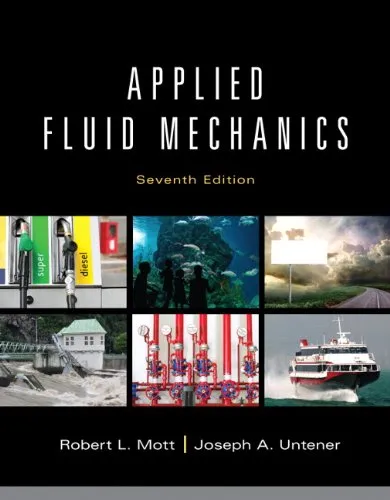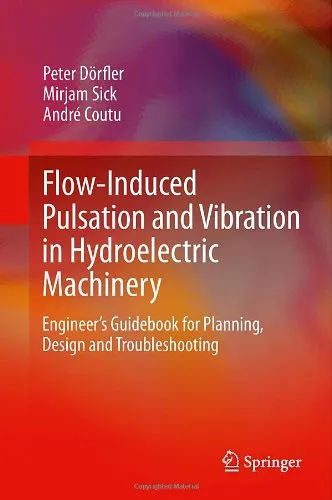Transport Phenomena for Chemical Reactor Design
4.5
Reviews from our users

You Can Ask your questions from this book's AI after Login
Each download or ask from book AI costs 2 points. To earn more free points, please visit the Points Guide Page and complete some valuable actions.Related Refrences:
Introduction to "Transport Phenomena for Chemical Reactor Design"
"Transport Phenomena for Chemical Reactor Design" is a comprehensive resource that bridges the worlds of chemical engineering and reactor design. Authored by Laurence A. Belfiore, this book takes an integrated approach to explain the principles of transport phenomena—covering momentum, heat, and mass transfer—and their fundamental connections to chemical reactor design. With its pedagogical rigor and insightful examples, this book is a treasure trove for students, researchers, and professionals who are eager to gain a solid foundation in chemical reactor design while mastering the essential principles of transport phenomena.
The book goes beyond traditional approaches to chemical engineering textbooks by offering in-depth discussions and practical applications, making it invaluable for advanced undergraduate, graduate, and professional learners. It is not just about presenting theories; it emphasizes their real-world relevance to designing efficient, safe, and sustainable reactors. Whether you're navigating the intricacies of chemical kinetics, fluid dynamics, or energy balances, this book equips you with the tools necessary to tackle the complexities of modern reactor engineering.
Detailed Summary of the Book
At its core, "Transport Phenomena for Chemical Reactor Design" integrates the three pillars of transport phenomena—momentum, energy, and mass—with chemical reaction engineering to construct a cohesive framework for understanding reactor performance and design.
The book begins with a detailed discussion of the fundamentals of transport phenomena. It explores how velocity fields influence momentum transfer, and how these concepts correlate with heat and mass transfer. Through extensive mathematical derivations and physical insights, the text develops a comprehensive foundation that forms the backbone of reactor design. A strong emphasis is placed on the interplay between transport processes and reaction kinetics, which is critical for tailoring reactors to desired operating conditions.
Key topics included in the book are fluid dynamics and velocity profiles, energy balances and heat transfer mechanisms, and mass transfer phenomena in both homogeneous and heterogeneous reactor systems. Practical applications such as boundary layer analysis, scale-up problems, and finite element modeling are also explored in detail. Throughout the book, readers will find illustrative examples, problem-solving strategies, and step-by-step explanations that make complex concepts more accessible.
Key Takeaways
- A thorough understanding of transport phenomena and their critical role in chemical reactor performance and design.
- Practical tools for solving real-world problems related to reactor design, scale-up, and optimization.
- Insights into the mathematical modeling of momentum, heat, and mass transport in reactive systems.
- A detailed understanding of heterogeneous catalysis and gas-solid and liquid-solid transport systems.
- Step-by-step derivations and examples that strengthen understanding and practical application of complex topics.
Famous Quotes from the Book
"The beauty of chemical engineering lies in the harmonious integration of physics, chemistry, and mathematics."
"Transport phenomena—from the smallest particle to the largest reactor—govern the behavior of systems in ways far more profound than meet the eye."
"In reactor design, balancing the minutiae of molecular interactions with macroscopic efficiency is both an art and a science."
Why This Book Matters
"Transport Phenomena for Chemical Reactor Design" holds a special place in both academia and industry. It serves as a critical bridge for engineers and scientists who wish to move beyond theoretical knowledge and apply their expertise to practical challenges in reactor design. By meticulously combining transport phenomena with chemical kinetics, the book provides an unmatched foundation for designing reactors tailored to optimize performance and sustainability.
The interdisciplinary focus of this book ensures that readers gain a well-rounded understanding, which is especially crucial in today’s rapidly evolving chemical engineering industry. As chemical engineers grapple with increasing demands for energy efficiency, sustainability, and safety, this book equips them with the scientific knowledge and practical skills they need to innovate and excel.
Free Direct Download
You Can Download this book after Login
Accessing books through legal platforms and public libraries not only supports the rights of authors and publishers but also contributes to the sustainability of reading culture. Before downloading, please take a moment to consider these options.
Find this book on other platforms:
WorldCat helps you find books in libraries worldwide.
See ratings, reviews, and discussions on Goodreads.
Find and buy rare or used books on AbeBooks.
1458
بازدید4.5
امتیاز0
نظر98%
رضایتReviews:
4.5
Based on 0 users review
Questions & Answers
Ask questions about this book or help others by answering
No questions yet. Be the first to ask!
